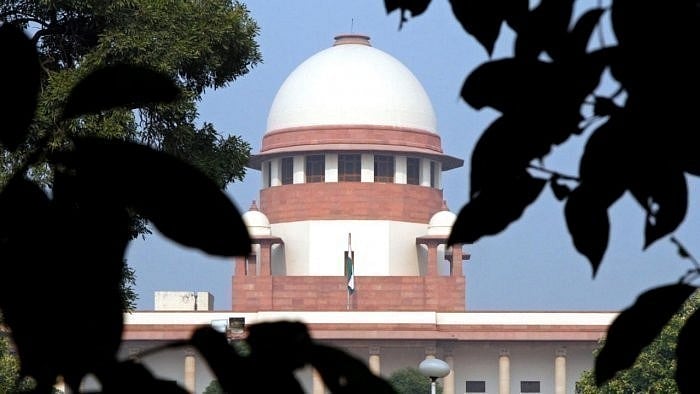
The Supreme Court of India.
Credit: PTI File Photo
New Delhi: The Supreme Court on Friday said informing the person arrested of the grounds of arrest is not a formality but a mandatory requirement under Article 22(1) of Constitution.
"If the mandate of Article 22 is not followed while arresting a person or after arresting a person, it will also violate fundamental right to liberty guaranteed under Article 21, and the arrest will be rendered illegal," a bench of Justices Abhay S Oka and N Kotiswar Singh said.
The court also held that when a violation of Article 22(1) is established, it is the duty of the court to forthwith order the release of the accused.
"That will be a ground to grant bail even if statutory restrictions on the grant of bail exist. The statutory restrictions do not affect the power of the court to grant bail when the violation of Articles 21 and 22 of the Constitution is established," the bench said.
The court also said mere information of arrest will not amount to furnishing grounds of arrest.
In its judgment, the court dealt with the constitutional and statutory requirement while ordering forthwith release of Vihaan Kumar, holding his arrest by the Haryana police in a 2023 cheating and forgery case on June 10, 2024 as being in violation of Article 22(1).
The bench took an objection his handcuffing and tying to hospital bed during the custody, saying "shocking" treatment itself was violation of Article 21. It directed the state government to issue guidelines and instruction to ensure such an act is not committed again.
Senior advocate Kapil Sibal, appearing for the appellant, contended grounds or reasons for arrest or reasons were not communicated to him in violation of Section 50 of CrPC and Article 22(1). He also claimed the appellant was not produced before a court within 24 hours of his arrest. The state government relied upon the case diary, remand paper in which grounds of arrest were explained.
The counsel said the contention on violation of Article 22(1) was raised two months after the arrest. He said the appellant is now under the custody by the process following the charge sheet.
The court, however, said reliance upon case diary was irrelevant. It noted no contemporaneous documents have been put on record wherein the grounds of arrest have been noted.
In his separate and concurring view, Justice Singh said the requirement of communicating the grounds of arrest in writing is not only to the arrested person, but also to the friends, relatives or such other person as may be disclosed or nominated by the arrested person, so as to make the mandate of Article 22(1) of the Constitution meaningful and effective failing which, such arrest may be rendered illegal.
Relying upon previous judgment in case of Pankaj Bansal and Prabir Purkayastha, the court also explained once arrest is held as vitiated due to violation of Article 22(1) of the Constitution, the continued custody of such a person based on orders of remand is also vitiated.
"Filing a charge sheet and order of cognisance will not validate an arrest which is per se unconstitutional, being violative of Articles 21 and 22(1) of the Constitution of India. We cannot tinker with the most important safeguards provided under Article 22," the bench said.
The court, however, clarified non-compliance with the requirements of Article 22(1) would not vitiate the investigation, charge sheet and trial.
The bench said when an arrestee pleads before a court that grounds of arrest were not communicated, the burden to prove the compliance of Article 22(1) is on the police.
"When an arrested person is produced before a judicial magistrate for remand, it is the duty of the magistrate to ascertain whether compliance with Article 22(1) has been made. The reason is that due to non-compliance, the arrest is rendered illegal; therefore, the arrestee cannot be remanded after the arrest is rendered illegal. It is the obligation of all the courts to uphold the fundamental rights," the bench said.
